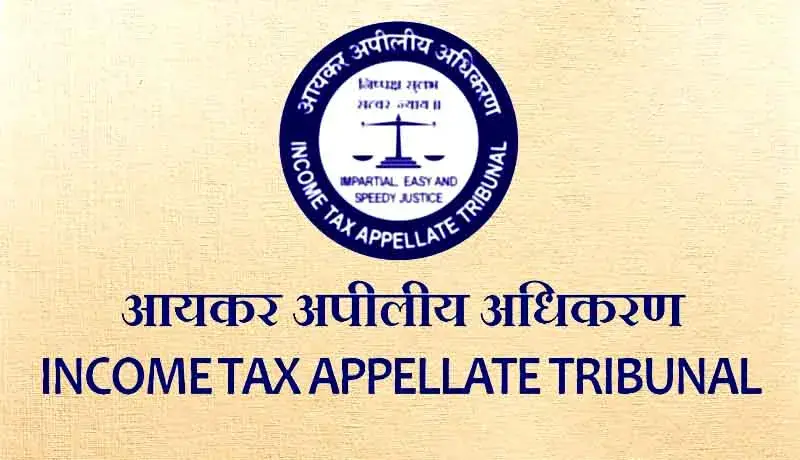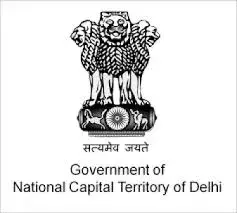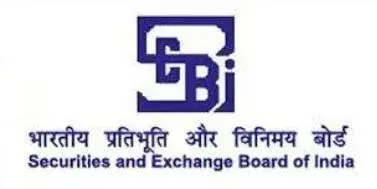India: Interest free loans provided by employers held taxable
 The Income Tax Appellate Tribunal (Mumbai) has held that the benefit received by way of interest free loan from employer shall be taxable and treated as perquisite in the hands of employees.
The Income Tax Appellate Tribunal (Mumbai) has held that the benefit received by way of interest free loan from employer shall be taxable and treated as perquisite in the hands of employees.
India: Delhi amended the Minimum Wages Act making penalties more stringent
 Recently, the Minimum Wages Act, 1948 was amended with respect to its application to the National Capital Territory of Delhi vide the Minimum Wages (Delhi) Amendment Act, 2017. Amongst a host of things.
Recently, the Minimum Wages Act, 1948 was amended with respect to its application to the National Capital Territory of Delhi vide the Minimum Wages (Delhi) Amendment Act, 2017. Amongst a host of things.
India: System-driven Disclosures in Securities Market
 SEBI has released a circular regarding the implementation of the next phase of System-driven disclosures in the Securities Market.
SEBI has released a circular regarding the implementation of the next phase of System-driven disclosures in the Securities Market.
India: Interest free loans provided by employers held taxable

Source: www.itat.nic.in
Introduction:
The Mumbai bench of Income Tax Appellate Tribunal (hereinafter referred as ‘ITAT’) vide order[1] dated May 16, 2018, has held that the benefit received by way of interest free loan from employer shall be taxable and treated as perquisite in the hands of employees.
Facts:
- The assessee was employed with Teej Impex Pvt. Ltd. and was drawing a salary income of INR 24 lakhs per annum.
- The assessee had obtained interest free unsecured loan from the employer.
- The employer deducted tax at source on salary paid to the assessee.
- The Assessing Officer (hereinafter referred as ‘AO’) observed that since the assessee obtained benefit by way of interest free unsecured loan, the same is chargeable to tax as perquisite under Section 17 (2) (iii) (c) of the Income Tax Act, 1961.
- The AO determined the value of perquisite by invoking Rule 3 (7) (i) of the Income Tax Rules, 1962.
- The AO estimated 15% interest on such loan and made additions to the total income of assessee for assessment year 2011-12.
- The assessee appealed before the Ld. CIT (A) being aggrieved by the assessment order.
- The Ld. CIT (A) observed that although the AO was right in determining value of perquisite in respect of interest free unsecured loan however, failed to follow Rule 3 (7) (i) while determining the quantum of perquisite.
- The assessee has filed the appeal against the order dated January 29, 2016 of the Ld. CIT (A).
ITAT’s decision:
- The AO was right in determining the value of perquisite in respect of interest free unsecured loan.
- ITAT upheld the findings of Ld. CIT (A) and dismissed the appeal filed by the assessee.
- The AO has determined value of perquisite as per the provisions of Section 17 (2) (iii) (c), however, erred while calculating the value of perquisite as he has adopted ad hoc 15% on outstanding loan.
Value of perquisite:
A perquisite value is based on the rate charged by SBI on April 1 of the financial year in which the employee received the loan according to IT Act rules.
Key takeaways:
- The employer is liable to treat an interest-free loan as a taxable perquisite.
- TDS is to be deducted from salary including the value of perquisite.
- The value of perquisite has to be determined as per the provisions of Income Tax Act and not on ad hoc basis.
___________________________
[1]Available at:
https://www.itat.gov.in/files/uploads/categoryImage/1526449182-Neha%20Saraf%202172.pdf.
India: Delhi amended the Minimum Wages Act making penalties more stringent

Source: www.delhi.gov.in
The Minimum Wages Act, 1948, (hereinafter referred to as “the Act”) was amended with respect to its application to the National Capital Territory of Delhi vide the Minimum Wages (Delhi) Amendment Act, 2017 (hereinafter referred to as “the Amendment”) and received the Hon’ble President’s assent recently. Amongst other things, the amendments which would have a significant impact are those related to more stringent punishments for offences, digitization of records and cashless payment of wages. Few of the important amendments are discussed below:
Conditions while fixing/ revising minimum rates of wages:
Section 4 of the Act deals with the fixing or revising the minimum rates of the wages. The Amendment requires the appropriate Government to take into consideration:
- the skill required,
- the arduousness of the work assigned to the worker,
- the cost of living of the worker; and
- other such components
while fixing or revising the minimum rates of wages.
Cashless payment of wages:
The Amendment requires that the wages to be paid through online transactions instead of cash payment in view of the national regime of going cashless. However, keeping into consideration that the daily wage labor class of people to whom these laws are applicable are dominantly dependent on cash transactions, the Amendment also prescribes 2 exceptions to the rule of online payment of wages:
- In case of payment of wages to the workers employed on daily wages basis, not less than minimum wages as notified from time to time by appropriate Government; or
- In case of special circumstances which are beyond the control of employer like- fire in the establishment, natural calamities, death of employer or director of the establishment and other such circumstances as prescribed by appropriate Government.
Overtime:
Earlier, the overtime rate was to be fixed by the appropriate Government. However, the Amendment fixes a minimum limit for the overtime rate which shall now not be less than 2 times of the normal rate of wages fixed under this Act or under any law of the appropriate Government for the time being in force, whichever is higher.
Penalties:
- Payment of wages less than the minimum wages to the laborer falling within the ambit of scheduled employment is an offence as per Section 22 of the Act. The Amendment has sought enhancement of punishment for this offence. The term of punishment has now been increased from 6 months to 3 years. The amount of maximum fine which may be imposed has also been increased from INR 500 to INR 50,000.
- Under Section 22A of the Act prescribes general punishment for the contravention of the Act where no other penalty has been prescribed. In such cases the penalty in the Act is only fine which may extend upto INR 500. However, after the amendment, the penalty will include imprisonment for a term of 1 year and/ or a fine which shall extend upto INR 20,000.
Disposal of cases:
By amending Section 22 B of the Act the Courts will now be required to dispose of the complaints made under Section 22 within 3 months of the date of making of the complaint
Digitization for recording information:
The employers are now required to upload the employee data on website or web portal in the manner as may be prescribed.
India: System-driven Disclosures in Securities Market

Source:
www.sebi.gov.in
Background:
The Securities and Exchange Board of India (hereinafter referred as ‘SEBI’), vide circular dated December 01, 2015, had introduced system-driven disclosures in securities market detailing the procedure to be adopted for its implementation. The procedure was further streamlined vide SEBI circular dated December 21, 2016 to ensure that the depositories provide the transaction data of promoters/ promoter group on a daily basis directly to the stock exchanges for dissemination of the necessary disclosures.
Implementation of the system:
The proposal regarding system-driven disclosures in the market has been proposed to be implemented in phases. The first phase has seen the implementation of the disclosures of promoter/promoter group under the following regulations:
- SEBI (Substantial Acquisition of Shares and Takeovers) Regulations, 2011
- SEBI (Prohibition of Insider Trading) Regulations, 2015
Second Phase:
In furtherance to the above, SEBI vide circular May 28, 2018 has proposed to implement the next phase of the system wherein SEBI has also enlisted the steps that are required to be taken for implementation of the second phase. Further, in the second phase, the following additional disclosures have been proposed to be implemented:
- Disclosures under Regulation 29 (1) and 29 (2) of the SEBI (Substantial Acquisition of Shares and Takeovers) Regulations, 2011 by non-promoters;
- Disclosures under Regulation 7 (2) of the SEBI (Prohibition of Insider Trading) Regulations, 2015, pertaining to directors and employees of the company.
Applicability of this circular:
- SEBI has specified that the disclosures under Regulation 29 (1) and 29 (2) of the SEBI (Substantial Acquisition of Shares and Takeovers) Regulations, 2011 by non-promoters shall not be applied to a scheduled commercial bank or public financial institution as pledgee irrespective of whether such a pledge is for securing indebtedness in the ordinary course of business or not.
- SEBI has also specified that with respect to the disclosures under Regulation 7(2) of the SEBI (Prohibition of Insider Trading) Regulations, 2015 pertaining to directors and employees of the company, the CEO and up to two levels below CEO of a company shall be deemed as employees for the purpose of system-driven disclosures.
Parallel system:
SEBI has specified that this system will continue to run in parallel with the existing system. This essentially means that all the entities shall continue to comply with the disclosure obligations under SAST Regulations and PIT Regulations as applicable to them.
Disclosures on the websites of Stock Exchanges:
SEBI has also instructed that the Depositories and Stock Exchanges to make necessary arrangements so that the above-mentioned disclosures are displayed on the websites of respective stock exchanges from August 01, 2018.

